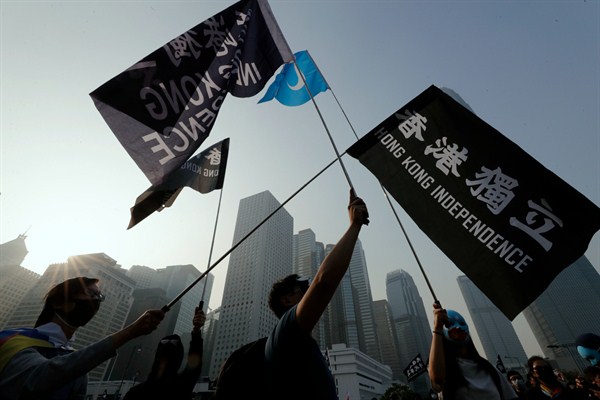In order to understand the mounting tensions in both Taiwan and Hong Kong over their relationships with mainland China, one must abandon the usual time frames of weeks, months or at most a handful of years and instead imagine the scenarios that open up over decades—five decades, to be precise. Over the next 50 years, interlocking dreams and nightmares will hang even more heavily over Taiwan, which Beijing considers a breakaway province, and Hong Kong, over which Beijing wants to assert more direct control, with possibly tragic outcomes.
China has all but announced that a new common reality must be forged between them by 2049. That is the year when China—by then, in all likelihood a superpower with the world’s largest economy—will celebrate the centennial of Communist Party rule.
This clock actually began ticking in earnest back in 1997, a much more optimistic time, when Britain returned Hong Kong to Chinese sovereignty under a carefully negotiated arrangement that has come to be known as “one country, two systems.” Under that scheme, Beijing granted this rich, highly globalized city broad autonomy over its own affairs for the next 50 years. It meant that Hong Kong could retain its own laws and judicial system, as well as its own semi-democratic political system—itself only a recent creation at the time of the handover—as well as the management of its own economy.

